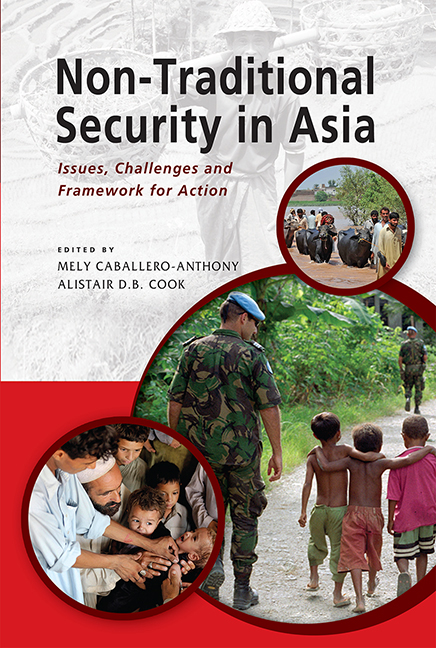2 - Health
Published online by Cambridge University Press: 21 October 2015
Summary
Health is one of the seven threat areas identified by Dr Mahbub ul Haq in the 1994 Human Development Report's definition of human security, and restated by the 2003 UN Commission on Human Security. In the 1994 report, health security recognizes that in developing countries “the major causes of death are infectious and parasitic diseases” and most of these are linked with poor nutrition and an unsafe environment — particularly polluted water. It identifies that in the developed world the major killers are diseases of the circulatory system, often linked with lifestyle and diet, followed by cancer. One common characteristic identified by the report is the need to address the disparities between rich and poor, urban-rural and both in the developed and the developing world. However, most infectious diseases do not gain exceptional traction in politics “because their effects are mild, they are familiar to physicians, or their geographic occurrence is limited”. Indeed, the contested nature of health security ensures that there is an ongoing tension between the different political actors framing the debate.
Alongside the 1994 UNDP Human Development Report, health security has evolved and is defined by the actors securitizing health matters. As a result, as with other areas of human security, the definition of what constitutes health security is contested. This contestation is not limited to the definition of health security but also over the utility of securitizing health in the first place. In Asia, health security came to prominence in 2003 with the emergence of Severe Acute Respiratory Syndrome (SARS) and avian influenza (commonly referred to as “bird flu”). With the spread of emerging and re-emerging infectious diseases, there has also been an increasing awareness of the significance of global health governance in an interconnected world. However, the 2003 SARS outbreak highlighted that international health governance was only as strong as its weakest link. By 2005 the International Health Regulations were reformed with a greater emphasis on national surveillance and verification systems. Indeed, these reforms saw the function of the World Health Organisation (WHO) change from a focus on “health work” to “global health security”.
- Type
- Chapter
- Information
- Non-Traditional Security in AsiaIssues, Challenges and Framework for Action, pp. 15 - 39Publisher: ISEAS–Yusof Ishak InstitutePrint publication year: 2013



